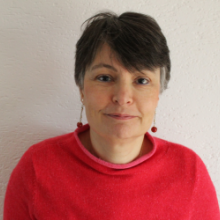How we treat skin cancers
The Institut Jules Bordet treats all skin cancers: melanomas, spinocellular carcinomas, basocellular carcinomas, Merkel cell carcinomas, etc.
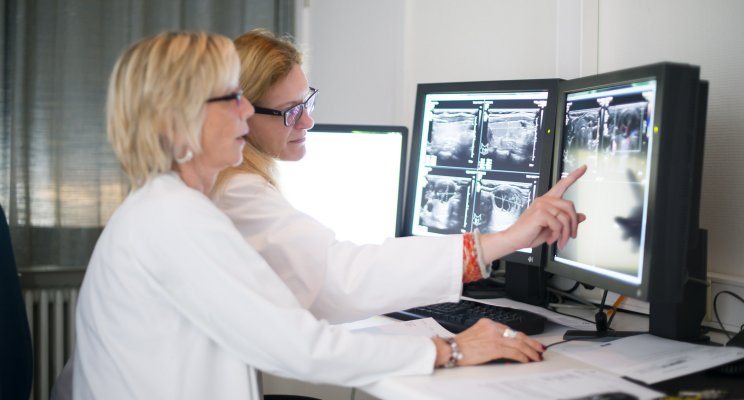
First of all, a biopsy is taken of the suspected skin lesion. The tissue removed is analysed in the laboratory to confirm and refine the diagnosis.
Then, depending on the type, stage and site of the skin tumour, staging may be carried out, in particular to look for any metastases. Several types of medical imaging can be carried out: ultrasound, X-ray, CAT scan, PET scan, etc.
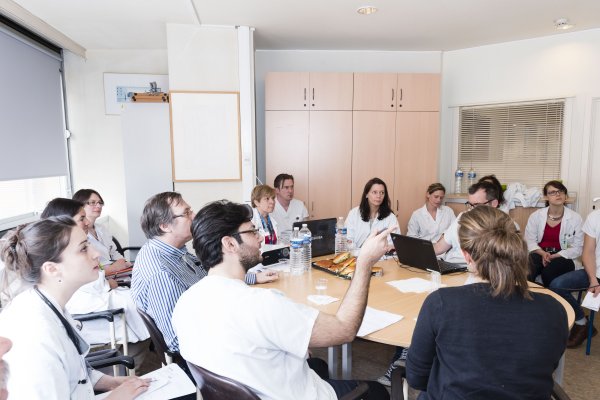
Every week the members of the multidisciplinary “skin cancers” cancer team (CMO) at the Institut Jules Bordet meet: the team consists of the oncologist, the dermatologist, the surgeon, the pathologist, the biologist, the radiologist, the specialist in nuclear medicine, the radiotherapist, the nurse coordinating the cancer care (ICSO) and the oncopsychologist. Objectives: to decide on the examinations to be carried out during the diagnostic phase and to determine and evaluate the most suitable treatments indicated for each patient.
Almost always the skin cancer is resected surgically. Generally the surgeon starts from the biopsy scar and enlarges and/or deepens the resection. In order to check whether the resection margins are healthy (and therefore to ensure that all of the cancer has indeed been removed), the resected tissue is analysed in the laboratory.
Sometimes, resection of the tumour must be accompanied by curettage of the lymph nodes of the area concerned via the sentinel node technique.
According to the cases and the type of skin cancer, other treatment may be considered:
- Drug treatments: immunotherapy, targeted treatment or conventional chemotherapy.
- Radiotherapy is an alternative to surgery for some cancers situated on delicate or extensive parts of the body (examples: nose, scalp, etc.).
- For recurrences of melanoma or in-transit metastases (situated between the primary tumour and the nodes in the area), 3 techniques can be considered: isolated perfusion of the limb, electrochemotherapy or the injection of an “oncolytic” virus, toxic to cancer cells.
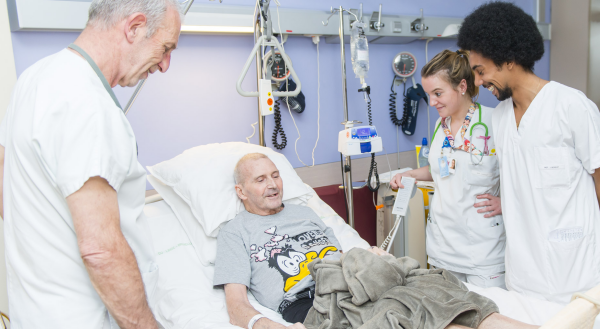
The Institut Jules Bordet's nurses, most of whom specialise in oncology, are committed to caring for patients with thought, humanity and professionalism.
Their role does not stop at care and treatment follow-up; they also meet families, and try to be as available as possible and by patients' sides while being attentive to everything confided in them.
The role of education, information and support is an integral part of their profession.
They must have relational, technical and scientific skills in line with the gravity and the complexity of the cancerous pathology.
The nurses are particularly attentive to the treatment of pain and other symptoms resulting from cancer treatment.
They also focus on their role as trainers to welcome and supervise students, and give them incentive to practice the profession in the best possible conditions.
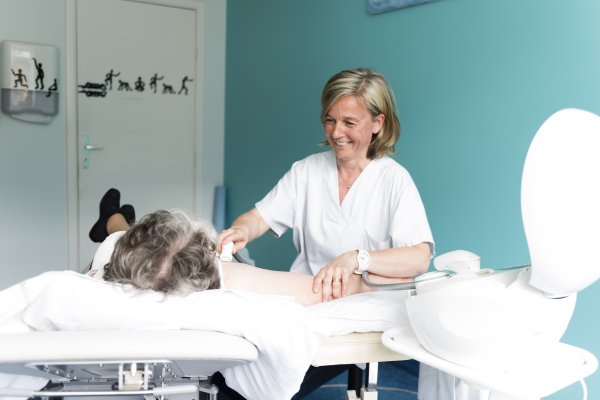
With the medical teams, many other healthcare professionals support the patients. They are dedicated to help patients in managing their illness and treatments, and to promote their wellbeing.
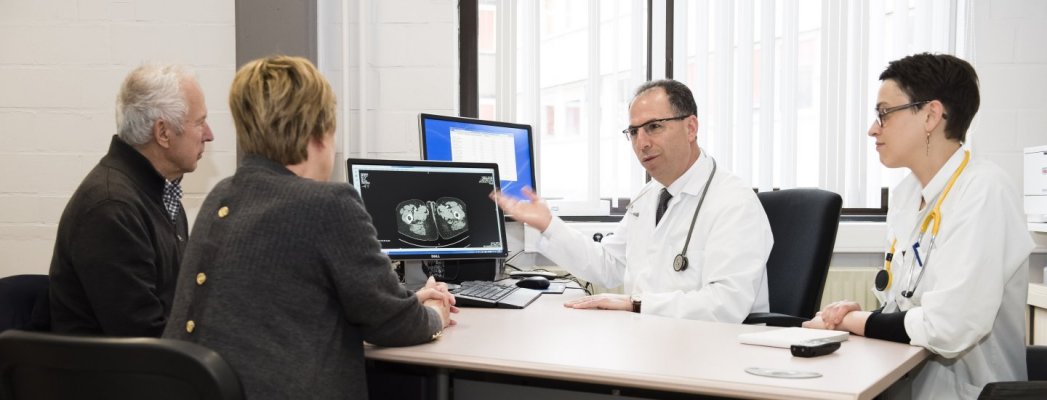
Every year many patients want to request a second medical opinion from our multidisciplinary teams.
Not all the doctors and hospitals will necessarily have the expertise, experience and/or equipment needed for an optimal approach to all types of cancer. At the Jules Bordet Institute this is our job! Requesting a second medical opinion is therefore often useful and reassuring for the patient. This is especially true in the case of rare cancers and/or cancers requiring complex or innovative treatment.
- To request a second opinion for a skin cancer: Tel: +32 (0)2 541 30 23
- To find out more about a second opinion, see our page "second opinion"
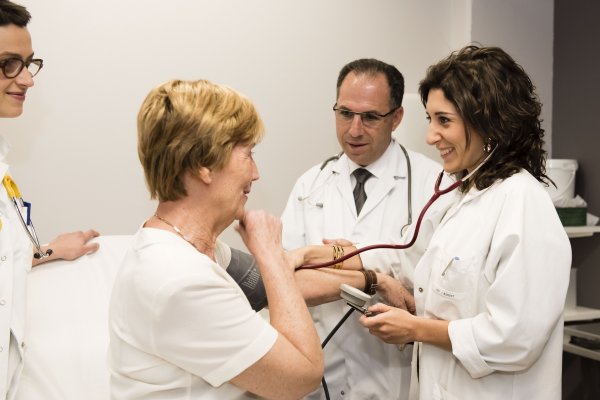
The aims of post-cancer care are multiple:
- to keep an eye on the physical and psychological state of the patient
- to manage any medium or long-term secondary effects of certain treatments
- to detect any recurrence as soon as possible
- to identify any new cancer.
Recurrence means that cancer cells reappear after a period of remission that can vary from a few months to several years. It can also happen that the same patient develops different cancers several years apart. In all these cases, the earlier a recurrence or cancerous disease is detected, the faster a new therapeutic strategy can be offered.
